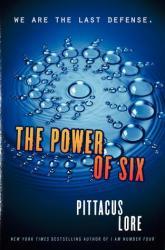
The sequel to I am Number Four is just as thrilling and action packed as the first. John, Sam, and Six set out as fugitives and work to find the others as we meet Seven. Seven is also known as Marina and lives in a convent/orphanage in Spain while she convinces her Cepan to rejoin the fight and develops her legacies. Complete with numerous battles, close escapes, incredible powers, and fun characters, The Power of Six is an excellent read for any middle or high schoolers.
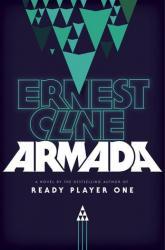
In a science fiction world shown by Ernest Cline, the protagonist, Zack Lightman, seems to have the whole world against him. His Dad has died in a freak accident, his school as well as his social life is miserable, and to make things worse everyone thinks he has gone crazy after breaking under this pressure. Having no interest in the real world, Zack throws himself into the vast world of science fiction and video games. One of his favorite games is a game called “Armada”, which is essentially a flight simulator involving space based combat. Not all is as it seems after a slew of strange missions and movements by the military it may be that this game is all too real. In this amazing work of science fiction by Ernest Cline, the future of Earth’s survival is seen through the eyes of Ernest’s protagonist. I greatly enjoyed this book, mostly due to the nature of the protagonist, Zack Lightman and the light humor played out on more serious concepts. I would recommend this book to anyone who enjoys science fiction.
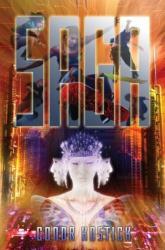
This book gives its audience a look into a virtual world that has run without human intervention for many decades. In this world the many NPCs have developed intelligence and personality, becoming almost human. This world is run by a strict, class based society, where each class is separated by “color”. Originally used to represent levels like in a game, it now is used by the matriarch of this society to suppress the many artificial intelligences that make up this world’s citizens. One of these citizens, Ghost, fights back against the system which eventually ends up with her in a bit of trouble. Soon after this, some familiar characters show up, such as Erik and from then on the story continues. In this virtual world shown in Conor Kostick’s book, the real world concepts of artificial intelligence interweave with the many dynamic characters’ actions and thoughts. Due to this and the premise of the story, this book has turned out to be one of my favorites so far. I would recommend this book to anyone who enjoys a blend of dystopia and science fiction.
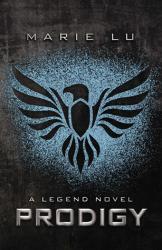
In the second book in the Legend trilogy, the story begins in a world shattered by an extreme rise in sea level. The protagonists, Day and June have escaped the Republic’s forces and are heading towards Vegas. When they arrive, the dictator of the Republic, the Elector Primo, dies and his heir takes his place. Presented with a mission from a rebel group known as the Patriots, the duo is tasked with assassinating this new leader. June, seeing this new ruler is different, is conflicted by both the world she left behind as a member of the Republic and the world she now knows from her experiences with Day. In this action packed book, Marie Lu explores many concepts that are both relevant to the reader and thought invoking, through the conflicting perspectives presented by her two protagonists. The world put out before this book’s audience gives its characters breath as well as gives the reader a stunning view into a different world. One of my favorite aspects of this book is the dynamic protagonists and the direct look into their development throughout the story. I would definitely recommend this book to anyone interested in a dystopian science fiction story placed in the not so distant future.
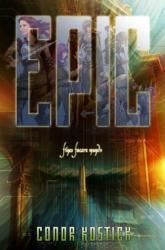
This book presents a colony world far from Earth, in which power in a virtual reality based game means everything. The protagonist, Erik, lives in a less privileged community suppressed by the policies of the ruling administration. In an attempt to get even at the unfair treatment of his parents and their community, Erik attempts to best them in an in game arena with a team of his friends. The team they are against doesn’t necessarily play fair and Erik loses. Angry with this loss, Erik creates a new character completely on a whim, focusing on other attributes people typically don’t use. Having gone against the status quo Erik has some mysterious encounters that lead him on a quest to rediscover this virtual world. In this work of science fiction, Conor Kostick introduces his protagonist and the many other characters into a living breathing world. The openness of the world and the protagonist’s dual nature were some of the main aspects I enjoyed about this book. I would recommend this book to anyone who enjoys science fiction, particularly one that revolves around virtual reality.
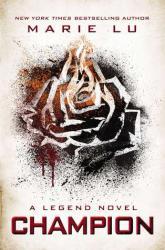
In the final book in the Legend trilogy, the story begins in a world shattered by an extreme rise in sea level. The protagonists, Day and June have overcome the Republic’s forces and are now trying to maintain balance in the nation along with their Patriot and Republic allies. When it seems the peace has just started, the neighboring nation, the Colonies, is hit by a terrible plague outbreak. Blaming the Republic, war seems inevitable. Day and June must now overcome yet another threat in the final book in the series.
Marie Lu demonstrates one last time, the conflicting yet agreeable perspectives presented by her two protagonists and how they make this story so interesting. The world put out before this book’s audience gives its characters depth as well as gives the reader a stunning view into a different world. One of my favorite aspects of this book is the dynamic protagonists and the direct look into their development throughout the story, especially in comparison to the first book.. I would definitely recommend this book to anyone interested in a dystopian science fiction story placed in the not so distant future.
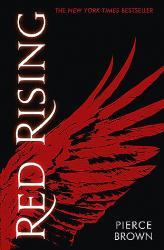
Red Rising adds maturity and depth to the dystopian novel genre, culminating into something more interesting and deep than the average dystopian series. The plot is set on Mars in a society separated into castes with the lowest of castes being extorted into serving the higher ones. The story is raw, emotional, and overall a worthwhile read. However, at times the plot progresses at a slower pace than desirable and occasionally the main character is rather robotic. Taking this into account the book remains enjoyable and I would recommend it to people looking for more out of the dystopian genre.
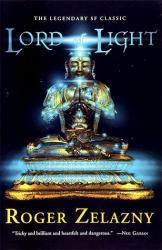
Lord of Light, winner of the 1968 Hugo award for best novel, is a fascinating excursion into a expertly crafted science fiction world involving both Hindu mythology and the struggle to free humanity from the oppressive rule of false gods. This book is exciting as well as thought provoking and an overall interesting read. The characters are well flushed out, the setting is both believable and fantastical, and every instant of the book engaging. For those not familiar with Zelazny's writing style, the book may become confusing at certain points. However, the reader is never lost completely and can easily catch back up with the story. This book is a must read for those interested in the science fiction genre.
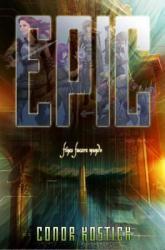
The world of New Earth is one where the game Epic decides all. Wealth, social standing, even access to resources and medical care. Erik Haraldson has become tired after dying one last time to the red dragon, a kill that would earn him and his family money beyond their wildest dreams. Erik decides to go against the normal conventions of Epic and decides to create a female swashbuckler with all points in beauty, a trait unheard of due to its uselessness in battle. But when the game itself starts talking to Erik, he soon discovers that there is a lot more at play in Epic then just grinding and wasting away.
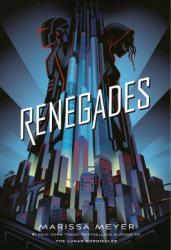
Nova Artino feels betrayed. The Renegades, a group of superheroes functioning as law enforcement celebrities, promised her family protection from a villain gang. Instead, Nova saw her family slaughtered before her eyes, one by one.Now, she’s part of a group of villains bent on destroying The Renegades. In order to do so, she has to infiltrate them and dismantle them from the very bottom.
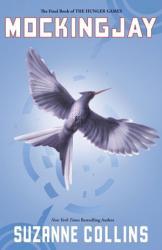
In the exciting conclusion to the "Hunger Games" series, "Mockingjay" follows Katniss Everdeen after she defied the Capitol in the Quarter Quell and fled to the underground city of District 13, where she is haunted by the idea of an impeding war and thoughts of her fellow tribute (and now captive of the Capitol) Peeta Mellark. In order to win this war against the Capitol, she must become a symbol of the rebellion -- the Mockingjay -- and unify the districts. Just like the others in the series, this book was phenomenal. I was completely invested in all the characters and had to see their journeys through to the end. The plot twists were even more shocking than ever. I cannot say enough about this series -- it is absolutely amazing. However, there is one thing about this book that made me enjoy it just slightly less than the others in the series. While the writing style of the other two books is relatively straightforward and direct, there were several parts in this book that left me confused, especially during action scenes -- which happened almost too quickly to follow. I didn't always entirely understand Katniss's motives (most particularly at the end) or why certain decisions were made.
This may've been on purpose, since Katniss is disoriented and suffering from mental problems during this time, which distort her sense of reality. Either way, I found it a little difficult to follow. Regardless, this book was amazing. I highly recommend the entire series. It is utterly legendary, and unlike anything I've read before.
Grade: 12
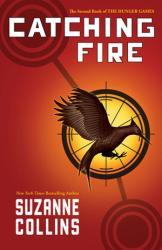
In the sequel to "The Hunger Games," "Catching Fire" begins with a reeling Katniss Everdeen, having just survived the 74th Hunger Games along with fellow tribute Peeta Mellark. Their survival greatly upset the Capitol, the ruling city of the country of Panem, and now they must deal with the consequences of their rule-bending victory. On their mandatory Victory Tour around the country, Katniss discovers that her actions have sparked the idea of revolution throughout the nation -- a revolution she never intended to start. And everything is about to change with the Quarter Quell -- the 75th Hunger Games -- looming over their heads....
This book was amazing! Having finished the first book (which was also fantastic), I didn't think the sequel could ever surpass the first. But, "Catching Fire" was equal parts surprising and intriguing. I love how the plot has thickened since the end of the first Hunger Games -- and how Katniss and Peeta deal with the consequences of their actions. We get to know more about some of the characters from the first (such as Haymitch and his backstory) and the growing relationship between Katniss and Peeta. The plot twists caught me completely off guard -- and almost every chapter ends with some sort of cliffhanger that makes you want to read even more! The only negative thing I can say about this book is that the beginning is just a little slow -- I think this is for the purpose of showing how Katniss's life has gotten slower (and more painful) since the end of the Games. But, this really shouldn't deter anyone from reading this amazing sequel. The writing is fantastic, the characters are incredibly well-developed, and the plot is epic. Another absolutely phenomenal book from Suzanne Collins!
Grade: 12
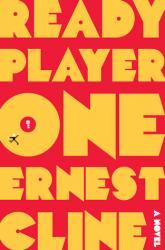
Wade Watts, a high school student like any other, starts his journey off in the slums of a world on the verge of economic and social collapse. In an attempt to escape the seemingly bleak world, many turn to the Oasis, an augmented version of virtual reality where the impossible is possible and people can become something other than what they are in the real world. The creator of the Oasis meets his untimely death due to a terminal illness, and in turn leaves behind his fortune and most prized possession, control of Oasis. The catch is, all you have to do is find his little “Easter Egg” within the vast world of the Oasis by finding keys linked to his favorite pastimes, such as old arcade games. It having been a long time since the announcement of this and now leads found, very few still pursue the egg. Wade Watts is one of them.
After discovering the first key on an online school’s virtual planet, Wade and the many others he meets along the way race to find the egg before the other hunters and the huge corporation, IO; in this science fiction world designed by Ernest Cline. I greatly enjoyed this book due to the vast worlds within his virtual one that he has illustrated for his audience.
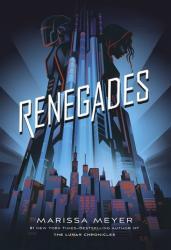
Nova, one of the few gifted with powers after their emergence, struggles in the societal aftershock and ruin left behind by the collapse. Now in the place of the governments that once stood, is a new organization, The Renegades, that provides stability and safety through the use of powers.
Before them was a time when groups of “villains” reigned over the weak, Nova was a member one of the most powerful groups referred to as the Anarchists. Now she attempts to infiltrate the Renegades to help bring back the waning power of the Anarchists, and along the way meets many who teach her just how vast the moral grey area is.
I enjoyed this book, given its science fiction/dystopian world that Marissa Meyers gives to her audience and the surprises that might come from just turning a page.
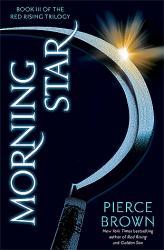
Darrow was captured and his identity revealed, the leader of the Sons of Ares was killed, and now the future of rebellion looks bleak. Darrow, now in a state of grief and failure, his body withering away as he waits for his execution, is rescued and given a second chance to realize Eo’s dream; to topple the corrupt society that stole everything from him. Now the leading force and face of the rebellion, Darrow has many struggles that await him in the final book in the Red Rising Trilogy. I greatly enjoyed this book due to how the many underlying plots are tied off in the end of the series as well as the resolution of each character’s internal struggles. Pierce Brown builds on many previous sub plots that as the reader you might forget, marvelously tying this book in with the rest of the series.
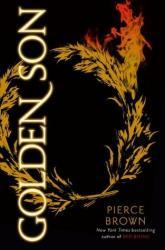
Darrow, having rose through the ranks of the Golds at the academy, becomes a member of the house of Mars. Having made enemies at the Academy, Darrow must prove his worth at the the Naval Institute; to attain a fleet for his house and in the future, the rebellion. Faced by his many adversaries, Darrow gets caught up in a civil war between the Gold’s houses. Darrow leads his audience through the corrupted society, with a view both from the bottom of society and the top, all the while exploring the concepts of grief, hatred, and what it means to fully understand your enemy. I strongly recommend this book to anyone who enjoys science fiction and stories on societal struggles. I enjoyed the world Peirce Brown created in this series as well as the dynamic characters and their internal struggles.
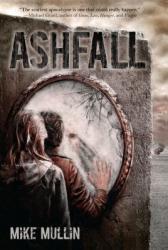
Yellowstone national park holds a super volcano with the potential to end the world. Mike Mullin explores the disastrous scenario of that volcano exploding with enough force to plunge the world into a nuclear winter in his debut novel, Ashfall. Following the story of 15-year old Alex, we see how the world transforms suddenly with the volcano’s explosion. After leaving the riots and looting of the city, Alex leaves for the countryside where he meets a farmhand named Darla. After unexpected complications arise at the farm, Alex and Darla are forced to leave. Now they must support each other as they face the biting cold of this new world as they face off against bandits, cannibals, and the military in order to survive and find Alex’s parents.
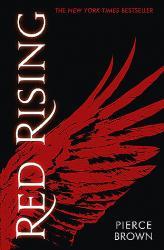
Review: Darrow, a lowly “Red” , the bottom rung of the hierarchical ladder in a society divided by “Colors”, mines Helium 3 far below the surface of Mars. This mining community is where he and his family have worked for generations, under the duress and harsh conditions that come with living underground in the mines. The Reds are always told that they will one day be able to return to the surface once they mine enough of the Helium 3, which is vital to the terraforming efforts. This lie shatters when one day he loses everything he loves to this society and learns the truth, that a vast civilization sits atop these mines; a civilization run by the cruel tyranny of the top class, the Golds. In this amazing work of science fiction, Darrow infiltrates the Golds in an attempt to bring down this rotting society that stole so much from him. During this journey, Pierce Brown brings you along with his protagonist, identifying many moral concepts, as he illustrates a living, breathing world within this complex story of a growing revolution. I really enjoyed this book, I felt that the book created an alternate world for its audience to get lost in; the world and how the author portrays it is something I look at when looking for a good book.
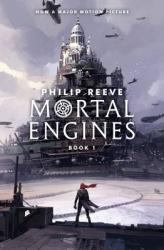
In a world of giant roaming cities, London is greatest. Philip Reeve’s Mortal Engines explores a post-apocalyptic world where cities roam on wheels and survival of the fittest reigns supreme. The novel follows Tom Natsworthy, an orphan who has become an apprentice historian, and his fateful encounter with Hester Shaw, a girl with a disfigured face who tries to kill Head Historian, Thaddeus Valentine. The two are thrown out of London, where they must reconcile their differences to overcome the harsh wasteland. From outwitting pirates, outrunning murderous cyborgs, to stopping a weapon that could destroy an already broken world, this book is a truly awesome experience.
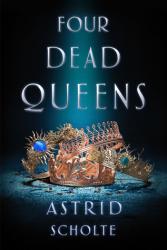
This book was not for me, but I think a lot of young adults will really love it. The following is essentially a laundry list of my issues. First, the worldbuilding was pretty weak. The fours quadrants are fairly reminiscent of those in Divergent, but they rarely interact and the farming sector basically works on Amish rules while the technological sector has holographs and advanced biosuits and all sorts of stuff. It does not make a ton of sense. And neither does the “queenly law” or really anything to do with the rules the palace or kingdom operates under – it all seemed pretty transparently created to serve the story that was written. Moving along. The characters really left something to be desired. Most were one-dimensional. The main character, Keralie, couldn’t make a good decision if her life depended on it and falls squarely into the snarky and ostensibly clever thief trope. We do get to hear from the queens a bit, but as I knew they’d end up dead and we only spent a little time with each of them, I didn’t find that it added to the story. And, of course, there is instalove between Keralie and our extremely boring male lead, Varin.
Some components of the book are pretty enjoyable. I think the premise is really cool (if executed poorly). The first queen’s murder took me a bit by surprise, and was deliciously gruesome. There were a few twists that I didn’t see coming. I quite liked the last 50 pages or so – the author, a debut, clearly has some really great ideas. Unfortunately, they didn’t come together in this book, though I’d try another book by this author pending favorable reviews.
TLDR: Readers who loved The Red Queen and Divergent will probably enjoy this one as well. I couldn’t get past the weak characters and worldbuilding, but I think a lot of readers will likely devour this one nonetheless. For me, it was just ok. 2 stars.
Thanks to Netgalley and G. Putnam’s Sons for the advance copy which I received in exchange for an unbiased review. Four Dead Queens will be released on 26 February.





 Ruth Holley Library will be temporarily closed for approximately one week starting Mon., Dec. 2 to complete roof repairs.
Ruth Holley Library will be temporarily closed for approximately one week starting Mon., Dec. 2 to complete roof repairs.